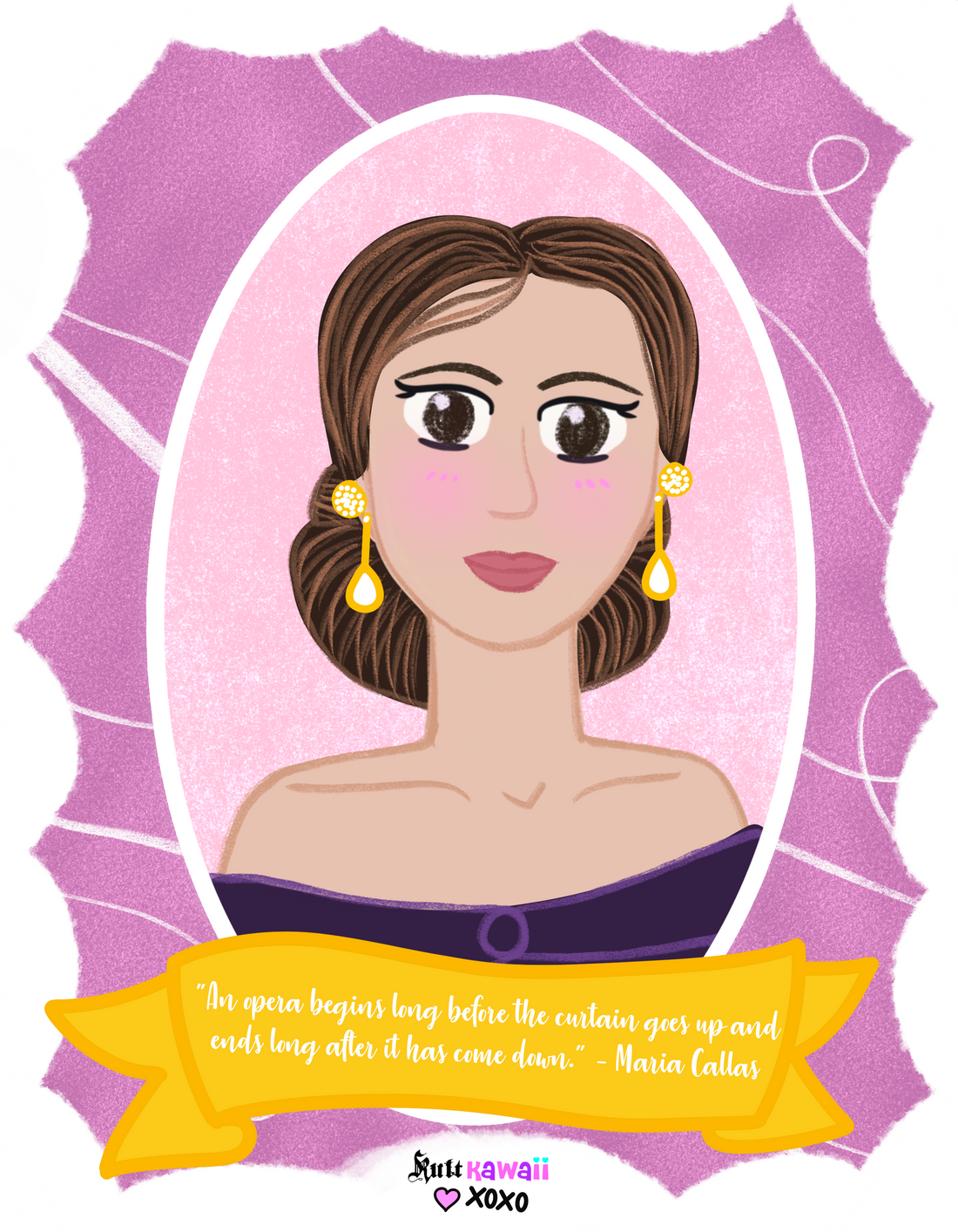
Maria Callas: The Opera Legend Who Took the World by Storm
There are voices that stop time, that make you forget where you are and leave you in awe. Maria Callas was one of those voices. This legendary opera diva captured the hearts of millions with her powerful range, emotional intensity, and dedication to the art of music. But Callas wasn’t just known for her exceptional singing; she was a woman of contradictions, triumphs, and challenges who reshaped the opera world as we know it. So let’s dive into the top five facts about this iconic diva and why she remains a giant in the world of classical music!
Her Voice Was a Masterpiece of Range and Emotion:
Maria Callas’s vocal range wasn’t just impressive—it was otherworldly. She was capable of spanning four octaves, a rare feat that few opera singers can ever replicate. But it wasn’t just about hitting high notes or deep low tones—it was her emotional depth that made her stand out. Callas didn’t just perform; she became the characters she was portraying. Whether it was the passionate Tosca, the heartbroken Norma, or the tragic Medea, Callas’s ability to bring out the raw emotion of each role turned her into a living, breathing opera. Her unique voice conveyed the emotional roller coaster that each aria demanded—her voice wasn’t just an instrument, but a vessel for storytelling.
She Revolutionized Opera Performance:
Before Maria Callas, opera singers were often more focused on vocal beauty than dramatic interpretation. While beautiful voices were revered, the emotional intensity and the connection between the singer and the role were often lacking. Callas was a game-changer. She was one of the first opera singers to marry incredible vocal technique with dramatic presence. She understood that opera is theatre, and she acted out each role with complete immersion, bringing them to life in a way that no one had done before. Callas’s performances were like live theatrical experiences—you couldn’t just admire her for her voice; you were mesmerized by the whole performance, from start to finish. Her intense dedication to both voice and drama reshaped the way opera was perceived.
Her Personal Life Was as Dramatic as Her Roles:
Maria Callas wasn’t just an opera legend—she was a woman of captivating complexity. Her personal life was almost as dramatic as the operas she performed. In the 1950s, she became involved with Greek shipping magnate Aristotle Onassis, a relationship that captured the world’s attention. The press couldn’t get enough of their turbulent love story—one that involved both heartache and passion. But Callas was no passive figure in the story of her life. She took control, and her relationship with Onassis became as iconic as her career. Though the two eventually parted ways, Callas’s personal saga only fueled her mystique, making her not only a celebrated opera star but a media sensation as well.
The Comeback Queen of Opera:
In the late 1950s, Callas went through a period of vocal struggles and personal hardships. Critics began to question whether her voice had started to fade, and she was no longer receiving the same kind of rave reviews she once had. But Callas was not the type to fade quietly into the background. She made one of the most triumphant comebacks in the history of opera. Her performance at the Paris Opera in 1957 was a sensation. It was a clear demonstration that she still had the power to command the stage. Her comeback was a testament to her strength, her resilience, and her unmatched passion for opera. She proved that even in the face of doubt, she could still deliver the kind of performance that would leave audiences breathless.
A Lasting Legacy That Still Inspires:
Maria Callas passed away in 1977, but her legacy lives on in countless ways. From her iconic recordings, which continue to captivate and inspire new generations of listeners, to the numerous biographies and films dedicated to her life and career, Callas’s influence is far-reaching. Her artistry set the gold standard for opera singing, and her vocal mastery continues to serve as a benchmark for aspiring opera singers today. Even after decades, Callas’s recordings remain legendary, inspiring vocalists, musicians, and music lovers across the globe. Her ability to blend technique and emotionleft an indelible mark on the world of music.
Fun Facts About Maria Callas:
- She spoke multiple languages fluently, including Greek, Italian, French, and English.
- Callas was an avid reader and loved literature. She often drew inspiration from poetry and classic literature when preparing for roles.
- Despite her fame, Callas was shy and introverted. She preferred the company of close friends over large social gatherings.
- Callas was often self-critical and would spend hours rehearsing her performances to perfect every note and every movement.
- Her signature style included dramatic makeup and elegant attire. Callas understood the power of presence both on and off the stage.
Final Thoughts:
Maria Callas wasn’t just a singer—she was a force of nature. Her voice, her passion, and her commitment to her craft made her an icon whose influence continues to shape the world of opera and beyond. Her journey was one of dramatic highs and challenging lows, but through it all, she remained unwavering in her pursuit of perfection. Whether she was taking the stage in front of thousands or grappling with personal demons, Callas gave everything she had to her art, and that’s what makes her truly unforgettable.
Maria Callas’s story is a reminder of the power of dedication, the importance of artistry, and the beauty of a voice that can stir the soul.
